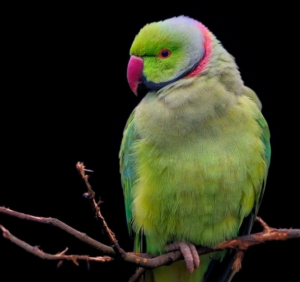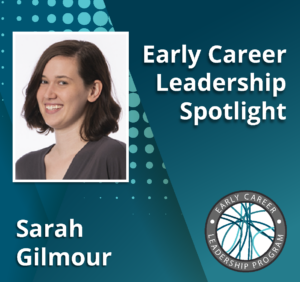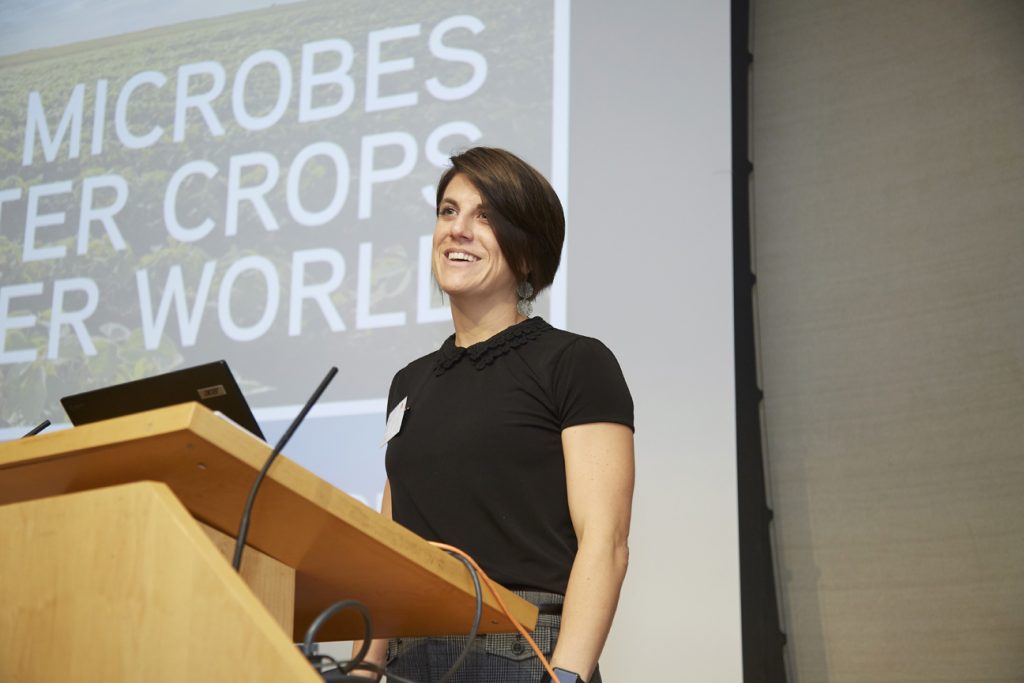
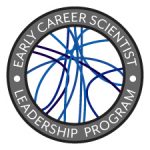 Tracy Raines works at AgBiome as a project leader and strategist. Her scientific career spans academia and industry. In her current role, she oversees the company’s workflow while also working in business and partnership development.
Tracy Raines works at AgBiome as a project leader and strategist. Her scientific career spans academia and industry. In her current role, she oversees the company’s workflow while also working in business and partnership development.
In the “Decoding Life” series, we talk to geneticists with diverse career paths, tracing the many directions possible after research training. This series is brought to you by the GSA Early Career Scientist Career Development Subcommittee.
Dr. Tracy Raines is the Chief Innovation Officer at AgBiome. She has a long and inspiring career journey that has moved her from different roles in industry and academia. As a mother and accomplished scientist, Dr. Raines shared with us her passion for agricultural biotechnology and food security, obstacles she has faced, turning points in her career, and traits that make her an inspiring leader.
How did you become interested in science?
I grew up in the Appalachian Mountains of Virginia, in the very small coal mining town of Grundy, Virginia. When I was younger, there wasn’t a lot of exposure to different types of careers in science other than becoming a teacher, doctor, nurse, pharmacist, or veterinarian. I always knew I wanted to work in the biology field as I had a fondness for the life sciences. One particularly formative moment was when my mother brought home a microscope and I was enthralled by it. I put almost anything I could under it just to get a closer look. After graduating high school, I decided to go to Virginia Tech to become a veterinarian because I loved animals and biology. But my experience with medical sciences wasn’t as I expected. I quickly realized that I become too attached to sick animals and would be miserable as a veterinarian! During my final year of undergrad, I took a molecular biology lab and I really enjoyed it. I fell in love with molecular biology, and I knew that I wanted to continue to work with DNA.
What was the most important career decision you made that led you to your current position?
After I graduated from college, I looked for opportunities to work in a molecular biology lab and discovered a startup biotechnology company named Paradigm Genetics in Research Triangle Park, North Carolina. They were a small company with only about 30 employees developing a high-throughput phenotyping platform to help determine gene function in plants. Working there allowed me to learn a multitude of molecular biology techniques—far more than I could ever experience in a university setting. I also learned a lot about how genes function in plants.
I worked at Paradigm Genetics for about four years. At that time, some colleagues started a company called Athenix Corporation, also an agriculture biotech company. I was eager to continue to grow my knowledge and experience, so I decided to join their team. As one of the first ten or so employees, we started in a small incubator lab at North Carolina State University and had very little lab equipment at the time. The excitement of building a lab, building a discovery platform, and building a team was one of the best experiences I have had in my career. I stayed at Athenix for about four years, discovering and patenting several insecticidal genes from naturally occurring soil bacteria.
Those career decisions to join two different biotech startups were instrumental in my training because they let me see and learn firsthand how successful companies are built from the ground up. More specifically, it was very rewarding to play an integral role in developing a successful discovery platform and company from the very early stages.
After having worked in industry, how did you decide to return to school and pursue a PhD? What were the major obstacles you faced?
I wanted to get a more rounded education and have more professional opportunities, so I decided to go back to school to earn my PhD after staying home with my kids for three years. I attended the University of North Carolina at Chapel Hill and studied plant physiology under Dr. Joe Kieber, focusing on plant hormone signaling. I did a lot of gene knockout experiments in plants and looked for resulting phenotypes. These experiments uncovered the roles and functions of various genes within the cytokinin signaling pathway.
To be honest, it was a bit of a rough transition back to an academic setting. My lab mates laughed at me because I had to learn how to do things at a much smaller scale compared to industry. It felt weird to step back and not have to do as many samples and to not use more modern and efficient equipment like multichannel pipettors.
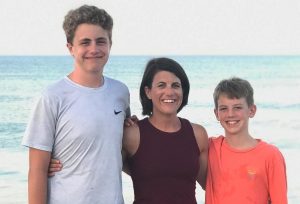
I was faced with plenty of challenges during my PhD that made me think about quitting. For part of my time at UNC, I was a single mom. Juggling graduate studies and home life was daunting and tiring. I wasn’t going to give up, and I persisted mainly because I knew the training would open many doors in my career and enable me to achieve my goals. To be successful, I really had to prioritize and be efficient. A lot of the younger graduate students spent time socializing, having coffee, and going for lunch. I, on the other hand, just had to be really regimented to get everything done in a day because I had to go home at a certain time to take care of my kids. Fellow graduate students and postdocs would often say, “You are here from nine to five, but you get more done than we do.” Through my PhD training I learned to work efficiently and to stay focused on what needed to be done, which still benefits me to this day.
What do you enjoy most about your job?
I’ve been at AgBiome for four and a half years. This was a very small company when I started and now we have about one hundred employees. I lead a partnership with a large seed company and work with a large group of people from multiple disciplines—from bioinformatics, molecular biology, biochemistry, plant transformation, greenhouse, entomology, and so on. I really enjoy the opportunity to learn about the science and develop my leadership skills. I also enjoy being at a company that emphasizes teamwork to achieve company goals. It’s very motivating and rewarding to develop a product that will help farmers and have a positive impact on food production.
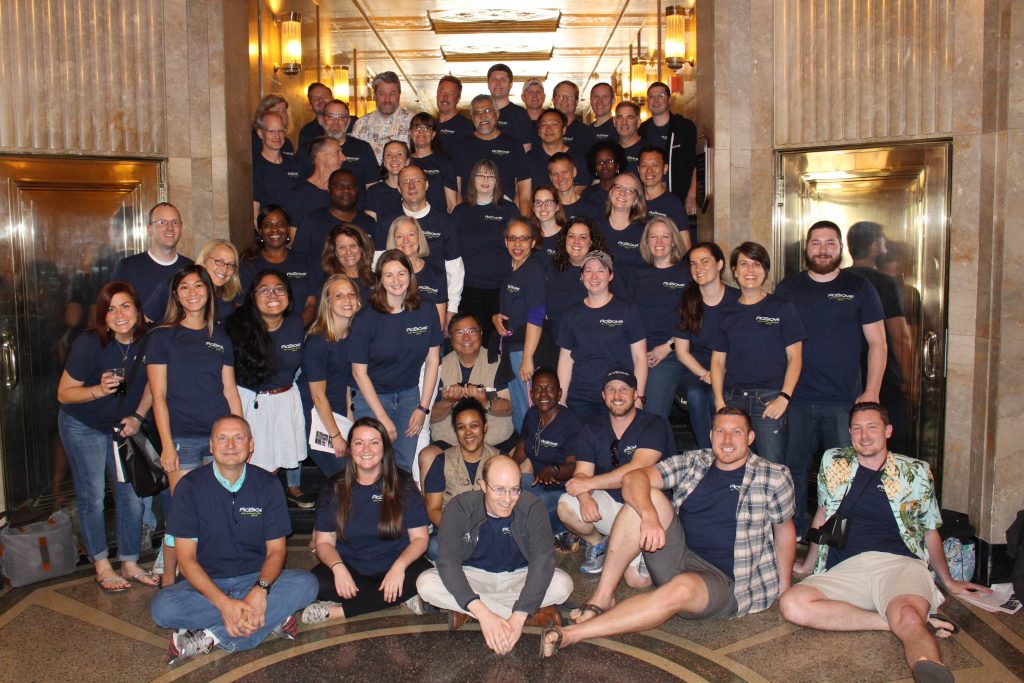
What personal traits helped you move forward in your career?
Ever since I was a kid, I have been very persistent. Life has made me face and overcome many challenges that otherwise would have caused me to quit science.
A second trait is passion. I really care about agriculture, and I don’t see myself ever moving outside of the field. I think agriculture is the most important area of science. We are facing a lot of challenges as the population grows and as the environment changes. To overcome these challenges, we’re going to need innovative agricultural solutions that come from research at companies like AgBiome.
What advice would you give to recent science graduates to succeed in Industry?
I would encourage early professionals to explore multiple opportunities, even if the opportunity doesn’t feel like an ideal fit. Also, don’t be afraid to try new things. You never know what you’re going to fall in love with and what connections you’re going to make. Your career is never a straight line; in fact, I think it’s more like a winding country road back in the Appalachian Mountains of my youth. Don’t be afraid of what’s around the next corner. It could be the opportunity you’ve been looking for.
About the author:
 Bernarda Calla is a member of the Early Career Scientist Career Development Committee and a Research Scientist at the University of Illinois at Chicago. She is currently researching the cytochrome P450 gene family and its evolution, and she hopes to one day lead her own research lab.
Bernarda Calla is a member of the Early Career Scientist Career Development Committee and a Research Scientist at the University of Illinois at Chicago. She is currently researching the cytochrome P450 gene family and its evolution, and she hopes to one day lead her own research lab.
Learn more about the GSA’s Early Career Scientist Leadership Program.











